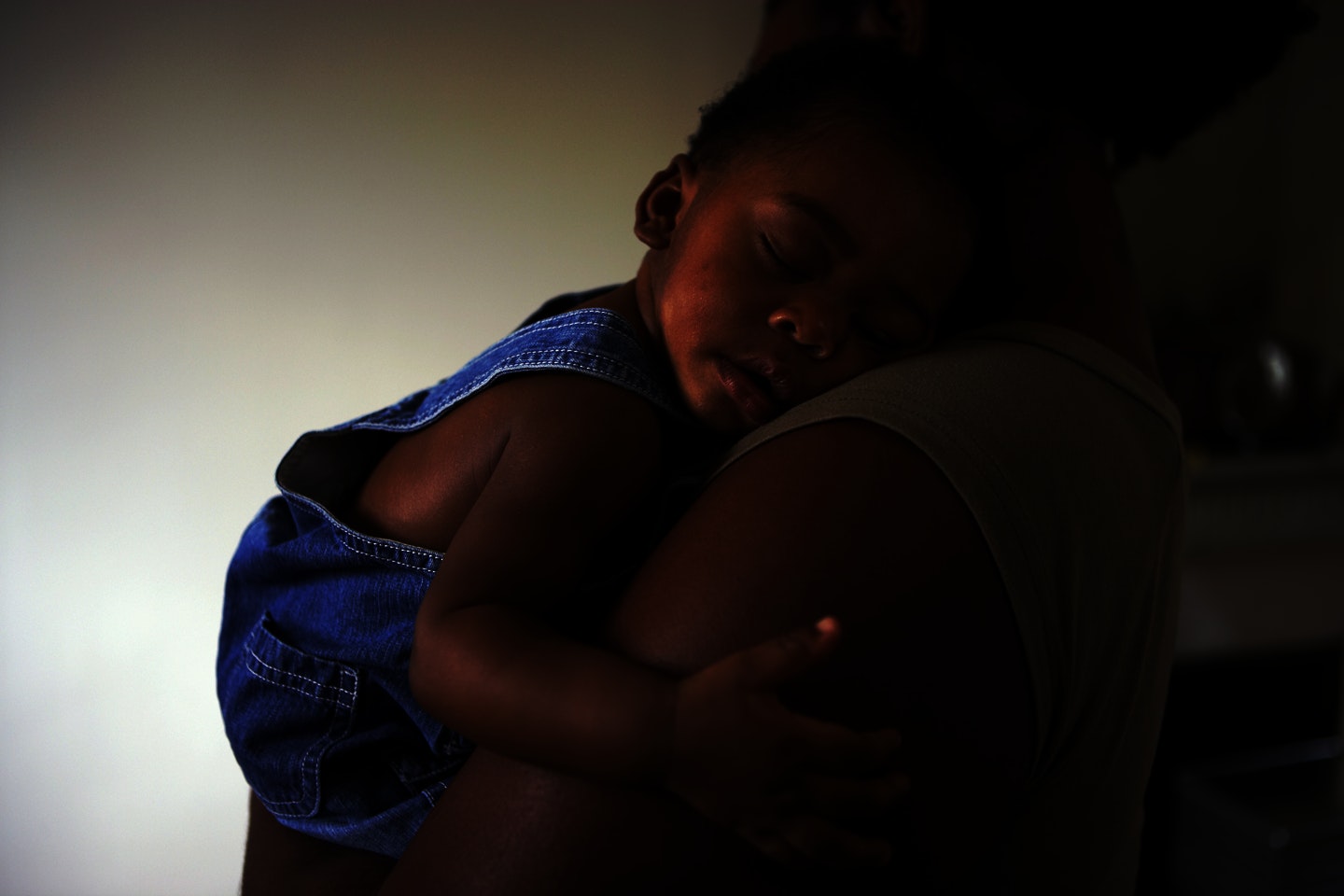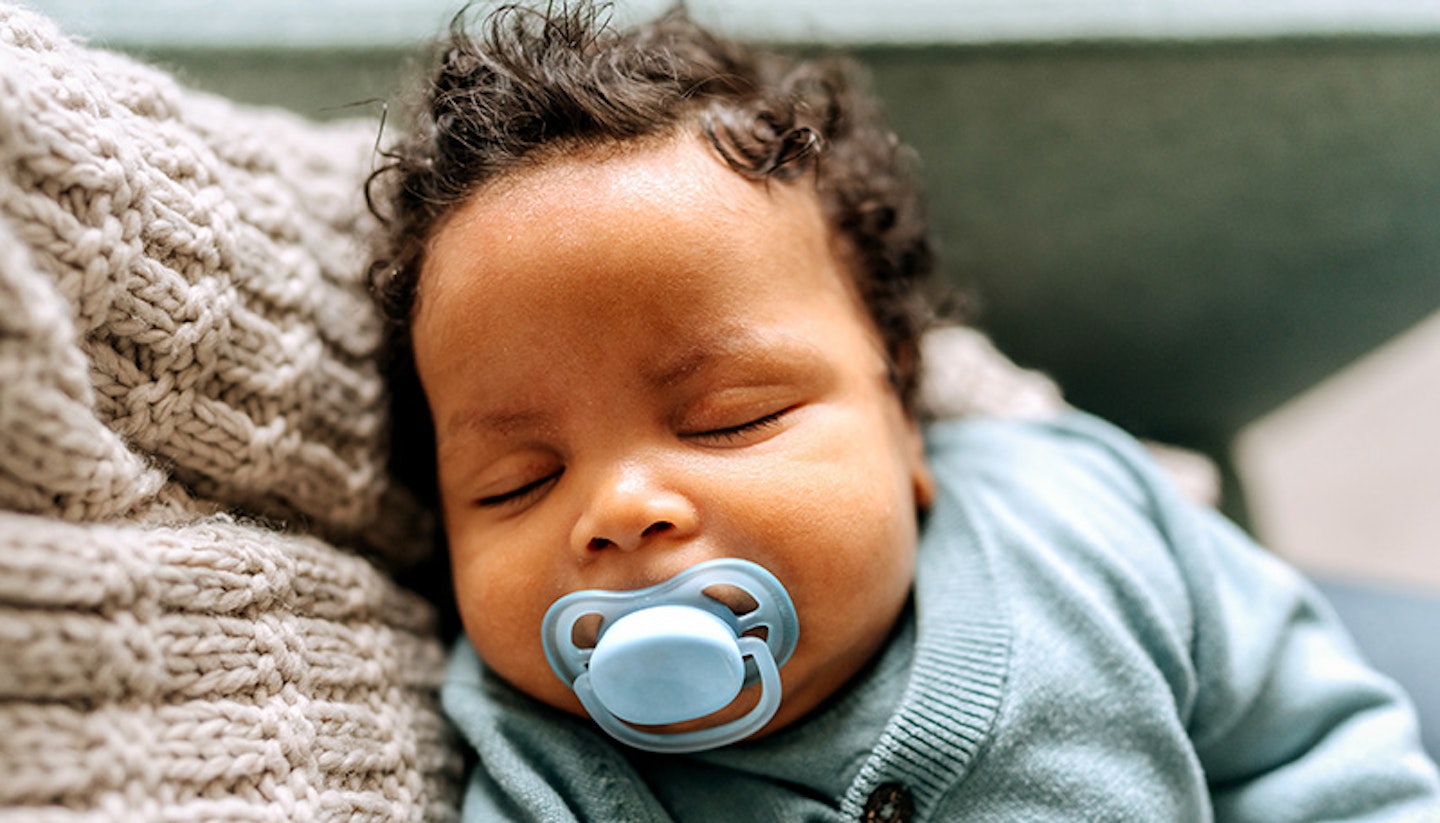In case you'd forgotten (don't worry, we nearly did too), the clocks go forward once a year, at 1am on the last weekend of March and go back again at 2am on the final Sunday of October.
We chatted to sleep coach Dave Gibson, founder of The Sleep Site, who specialises in providing lifestyle advice and hypnotherapy for families and children with sleep problems, and got some brilliant ideas from Baby Sleep Coach, Jade Zammit from Beyond The Stars on behalf of Kiddies Kingdom. Here are their expert baby sleep tips if you're worried the clock change will affect your baby's bedtime and sleep routine.
How to manage the clock change with a baby
1. Make changes gradually
Many parents have found success changing their little one's bedtime over the course of two weeks, a week, or a weekend, depending on the age and temperament of their little one. "For young children, it's often easiest to change the bedtime in 15-minute increments over a long weekend," says Dave. "If there is an adjustment, then it won't interfere with waking them up for nursery."
Jade agrees, “Gradually increase timings by 15 minutes every day for the week leading up to the clock change, this includes all wake times, naps and bedtime." She gives this example for when the clocks go back in October - “bedtime becomes 7.15pm, and the next becomes 7.30pm, 7.45pm and eventually 8pm by the Saturday night. This means that when the clocks go back on the Sunday, you'll be right back to where you were before!
2. Split the Difference
For older toddlers, Jade suggests the split the difference method. For October, this means "you adjust their bedtime over two nights by 30 minutes. This means putting your toddler to bed 30 minutes earlier on Saturday and 30 minutes later on Sunday, that way you can make up the difference.”
3. Tire them out
"Plan days with heavy activity, particularly physical activity, for the days on which you are putting the bedtime earlier," says Dave. "Naps will be easier to move back when children are more tired."
4. Have a bedtime wind down
When the clocks go forward in Spring it can be hard to deal with lighter evenings, especially during the transition, so dimming the lights at night and closing the curtains a half-hour or an hour before bedtime can encourage a sense that bedtime is coming. "Be sure that the windows have black-out shades as evenings stay lighter later," says Dave. When the clocks go back in October, these blackout blinds and curtains will also keep the room dark for longer in the morning.

5. Adjust other activities
Over the days you change bedtime, be sure to change bath time, nap time and meal times too. "If the bedtime changes are gradual - say, 10 minutes over 6 days - then change the other activities by 10 minutes as well," says Dave.
6. Practice what you preach
While our body clocks and circadian rhythms are less sensitive to the clocks going forward or back, it will help you too if you tweak your own bedtime schedule. "Be sure to adjust your own schedule in the same way you change your children's," says Dave. "It will make managing the clock change and baby's routine changes easier for everyone."
7. Altering waking time
Make sure you adjust your baby’s routine to suit the new time change to avoid baby waking early, or sleeping too late, especially if they have school or nursery. "Don't let them oversleep in the morning or overcompensate at nap time for an early start, otherwise it will carry on to the next day," adds Dave.
8. Eat right for sleep
Always be careful with what your child eats close to bedtime. "Milk contains tryptophan which increases the amount of serotonin a natural sedative," says Dave. "A banana with milk provides vitamin B6 which helps convert the tryptophan to serotonin. Another fruit to consider is cherries which contain melatonin which the body produces to regulate sleep."

What not to do when the clocks change
While these are the tried and tested ways of how to deal with clocks going back with a baby, there are also a few things to avoid.
1. Overdoing it
Make sure any adjustments to your baby or toddler's routine are comfortable for your child. Jane suggests, “if they become really overtired then this can bring on early rising in itself. And you'll have the opposite effect of what you're aiming for!”
2. Focusing only on bedtime
The challenges brought by the clock changes aren't just about sleep - all aspects of your child’s routine need to be considered. For example, mealtimes, and as Jane says, it's important to consider “breakfast, lunch and dinner times as their digestive systems are closely linked to our bodies responses to day and night!”
3. Rushing the process
“Don’t be too concerned if your little one isn’t able to adjust instantly. It can take up to a week for them to fully adjust, so remember to be patient,” Jade advises.
The clocks changing can be difficult for everyone but especially for little ones who thrive on routine. However, remember, any disruption to your baby or toddler's body clock tends to be temporary. Most children get back on schedule within three days.
Frequently asked questions
Does the clock change affect babies?
A baby's body clock is more sensitive than an adults so they're more likely to be affected by the clocks changing. Even just one hour can affect their sleep patterns and because they're also more reliant on things like the daylight or darkness to let them know when to sleep or wake, these changes can throw them off their schedule.
How long does it take babies to adjust to daylight savings?
Babies can take anywhere from a few days to a week to adjust to the changing of the clocks, but hopefully these expert tips will ease them into the change more smoothly and make the transition quicker.
About the experts
Dave Gibson has over 20 years experience in healthcare and well-being, and provides educational wellbeing workshops online and in person across a wide range of areas including Stress, Sleep, Posture, Diet, and Exercise and run Osteopathy, Hypnotherapy, Stress Management, Sleep Coaching and Naturopathy.
Jade Zammit qualified in Infant & Child Sleep Consultancy and as an ADHD Sleep Awareness Practitioner after struggling with her own children's sleep. Using her own experiences, she saw an opportunity to help others get their little ones to a contented sleep place, make sure that no one had to feel alone in the world of sleep deprivation, and make a difference to many families. Jade has received awards globally for her services and online programs, supporting others, educating, empowering parents' decisions and helping families journey through tough sleep challenges.
Lorna White is the Products Editor for Mother&Baby. After running the Yours magazine website, specialising in content about caring for kids and grandchildren, Lorna brought her expertise to Mother&Baby in 2020. She has a keen interest in a range of topics from potty training and nutrition to baby names and early development and has a wide range of experienced medical experts and professionals at her fingertips. In her spare time, she enjoys spending time with her two young sisters, dog walking and enjoying the outdoors with her family.
